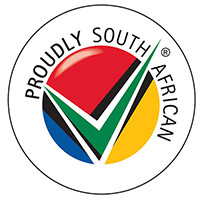This time next week the 9th annual two-day Proudly SA Buy Local Summit & Expo would have been in full swing at the Sandton Convention Centre. But following President Cyril Ramaphosa's announcement on measures to restrict the spread of the coronavirus on Sunday, we have regrettably had to postpone the event.
Ramaphosa acknowledged the impact the restriction would have on the economy of international travel, movement around the country and of gatherings of more than 100 people, sadly this at a time when we most need any kind of economic and job creation stimulus we can get.
Aside from the planned programme of presentations and panel discussions offering small, medium and micro-enterprises (SMMEs) advice and learnings on the first day, and the very specific localisation subject matter put together for the second (under the theme Localisation: Averting a deeper unemployment crisis), the event was to have seen almost 250 businesses exhibiting under one roof, probably the largest expo of qualified, quality local manufacturers and providers of products and services that you will find in the country.
We spoke last week about the need to make the inclusion of small business into the mainstream economy a priority. Specifically the expo component of the summit offered an opportunity for all corporate buyers and supply chain managers to come and source a broad range of products which they can absorb into their procurement processes.
We had invited corporate and retail buyers to attend the expo and to make a concerted effort to walk the aisles in order to source whatever raw materials, finished products, or services that they may require for their own business operations.
These kind of linkages between buyers of large retail chains and large corporates and smaller businesses are critical in growing our entrepreneurial sector.
This is why enterprise and supplier development programmes are more important for the sustainability of the SMME sector than a company simply placing an order with a local company, expecting them to fulfil it and not being surprised when they struggle with the magnitude of the new business that has come their way.
Only when a corporate truly brings a small supplier into the system can the small business flourish. They can benefit from transfer of skills, technology and knowledge.
The security of their first and ongoing orders can assist them with funding. So often we hear of the necessity of agreements to be in place before financial institutions can consider loans or other funding models. In some cases, the chicken and the egg conundrum applies, where an off-take contract is secured, but finance needs to be in place to fulfil the order, and in this case the buyer may have to wait longer for this delivery, which may affect their operations.
But without the off-take agreement, no funding.
Off-takes from companies that "protect" their companies may include time lines that can accommodate the financial process.
Large corporates know that by localising their supply chain they are also assisting in bringing down their own costs on shipping, exchange rate fluctuations and other factors.
They are prepared to invest in a long-term local relationship.
We talk about the "missing middle" in the context of funding for students, but there is also a missing middle of companies that are capacitated to meet the needs of some of our large corporates and multinationals. There are many small, kasi style businesses and start-ups making a living but never getting to their "next level". Only by growing the middle class in every sense - middle class LSM and middle-class businesses - can we put this extra level into the economy and give it the growth impetus it needs.
Even if our event has had to be postponed, now more than ever we encourage South Africans to support our own, to buy and procure locally manufactured goods and services and to support each other through this most difficult of times.
The most appropriate song for this week is Tshepo Tshola's Ho Lokile. We are in a dire situation, going through a sombre moment, but through the measures announced by Ramaphosa, it is clear that we acknowledge the challenge, and that we a re going to put up a good fight.
Most important, we soldier on as a country in our journey to minimise the impact the coronavirus pandemic will have on the economy and on jobs.


